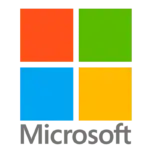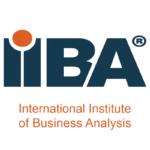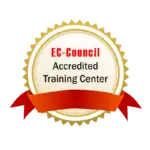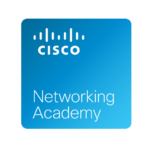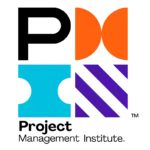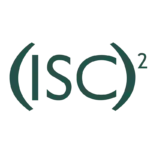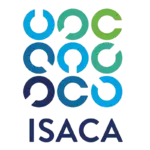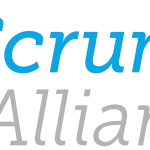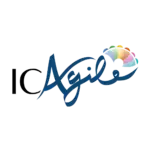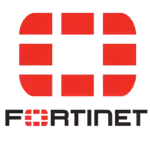Technical domain skills are a key component of professional success in today’s highly competitive and technology-driven world. These skills encompass a specialized set of knowledge and expertise that enable individuals to navigate and excel within their specific industry or field.
Technical skills meaning
Technical skills are the highly specialized expertise and proficiency needed to carry out some activities and make use of particular instruments and systems in practical settings.
Almost every sector and industry, from IT and business administration to health care and education, need a wide range of technical abilities.
Many entry-level jobs across industries call for fundamental technology abilities, such using Google Drive for cloud computing and accessing social media sites.
Programming languages, technical writing, and data analysis are a few examples of more sophisticated technical talents that a career may demand.
Technical skills frequently need specialized education and training to acquire, in contrast to workplace skills, sometimes known as soft skills, such communication and time management.
Examples on technical skills

Technical skills, often known as hard skills, are the application of your practical knowledge to tasks. Examples of technical abilities include:
- Data Analysis
- Web Development
- Computer programming languages
- UX design
- Graphic design
- Writing
- Financial management
- Improvement
Enhancing your technical abilities may be considering as ways to develop your current talents or pick up new ones to advance your career now that you have a better understanding of the technical skills that are in demand across industries.
Planning your next steps can help you identify the abilities you need most and the best training options.
To speed up this procedure, adhere to following steps:
- Determine your career objectives:
Write down all the experiences you want to have in your career. Gaining clarity can help you reach your goals more quickly, even if the employment market can be unpredictable and there are no promises. Start with these examples of career objectives, then add your own specifics:
- Boost efficiency at your present employment
- Receive a promotion in your place of employment
- Go after a profession in a new, more lucrative field.
- Decide on a career that will allow you to live the way you want.
- List the technical abilities you require:
You must determine which technical talents will assist you reach your goals once you are aware of them.
Find actual job openings in the field you want to work in by searching career-building websites like Glassdoor, LinkedIn, and Indeed.
Study each job description carefully:
- Which responsibilities, jobs, and projects would you most like to take on in your present position or a new one?
- What kind of lifestyle could be supported by these jobs?
- What is the proper knowledge, training, and other requirements listed in job postings?
Making a spreadsheet to track the technical abilities that companies want will help you decide which ones to focus on first.
- Develop fresh technological abilities:
You can develop technical skills that are specialized to a vocation in several ways, such as by enrolling in a course or training program, earning a certification, or pursuing an undergraduate or graduate degree. By looking into each program’s specifics, you may determine which one best suit your objectives and way of life.
- What are the required texts for this course? Will you have the opportunity to perform any career-focused, practical projects, gain knowledge in actual settings, and discover what it’s like to work in your selected field?
- What specific skills is this program expected to teach?
- Career potential: How do the program’s anticipated results compare to the abilities and credentials needed by companies in your industry? Does this program provide the credentials or certificates that businesses require?
Technical domain skills can propel your career

- Technology Shifts
Major technological changes now happen in less than two years, and occasionally even in a few months, as opposed to the 5 to 10 years they used to in the past. They can win typically, but it will occur when technology professionals are able to adapt quickly and maintain or accelerate their career advancements; failures typically occur when the professionals are unable to adapt at all or quickly enough, potentially resulting in their career stagnation and, in some cases, even more serious consequences, such as job losses.
- Flexible thinking and the four Cs
There are many more soft talents that technology workers may find it challenging to navigate, propel, or even sustain their career progressions without. Adaptability is simply one of the necessary soft skills to prosper in occupations related to technology.
Here are the four other soft skills that are important in addition to adaptability: communication, cooperation, critical thinking, and creativity, or the four Cs.
- Communication: Tech workers may occasionally use jargon in their correspondence, maybe under the idea that non-technical people will be familiar with their everyday, Speaking is not the only issue; occasionally, IT professionals also have poor listening skills, failing to put in their best efforts to actively listen to clients and users.
- Collaboration: Working in divisions to solve the many requirements of technology projects leaves very little room for just a few people or small co-located teams. For instance, only through an efficient collaboration of experts from various domains, such as software, hardware, networking, cyber security, data engineering, and data science.
“Collaboration” is one of the top seven qualities that every leader needs, according to the World Economic Forum.
- Critical thinking: The capacity of technology experts to tackle or resolve complex business problems with the aid of pertinent technologies and solutions is often regarded as a strength. However, if the solutions are created and constructed using only a cursory grasp of the business problems, without taking into account crucial information from the user’s environment, it will almost always result in a flawed, ineffective, and suboptimal solution. Before developing a solution that will successfully address those challenges, a technology professional must have the critical thinking abilities to pose thought-provoking questions about the business challenges, reflect on the justification and advantages and disadvantages of various alternative paths, and consider and validate information from a variety of sources.
- Creativity: Every time someone uses a food delivery app to order a meal, a travel portal to book a flight, or a government website to reserve a spot for a vaccination, their user experience is also shaped by the creativity of the experts who designed or developed those solutions.
Creative careers with coding skills
A creative coder must be able to exhibit a wide range of technical options as well as swiftly arrive at initial results. We cannot ignore the terms agile processes, design thinking, and permanent bet in our discussion of creative coding.
Technical specification documents do not contain any creative coding. It has to do with the capability of problem-solving with a relatively small team.
Despite popular belief, which holds that programmers exclusively think in terms of numbers and symbols, programming requires a great deal of analytical and critical thought.
There are many different career routes and opportunities for creative types to pursue that entail coding because coders are creative.
Using imagination, rationality, and clear code, professions in creative coding focus on bringing tasks and projects to life.
Let’s discover the most creative coding career:
- UI & UX Designer: User Experience in a website or application’s interface is the core of user experience.
- Web Developer: To make a web designer’s designs come to life, web developers use code. Web developers employ their creativity while deciding how to construct the design, even though they aren’t always choosing colors or deciding which images and graphics to put on a site.
- Visual Animator: Have you ever visited a website with amazing, animated graphics? When you move your mouse over an icon, it might do something. As you browse down the page, perhaps a wheel turns. A graphics animator coded the animation, whatever it was.
Getting started with CLS Learn

A very crucial thing to perform when you develop new technical abilities and enhance current ones is to update your resume with the most recent details.
In order to provide you the assurance that you are showcasing your technical strengths in the most advantageous way, this section discusses how to describe your technical skills.
Using CLS Learn to improve your technical abilities, it can help you get a popular professional certification in social media, project management, data analysis, and other fields are available in reputable courses and trainings.
Start learning right away and don’t waste any more time.









